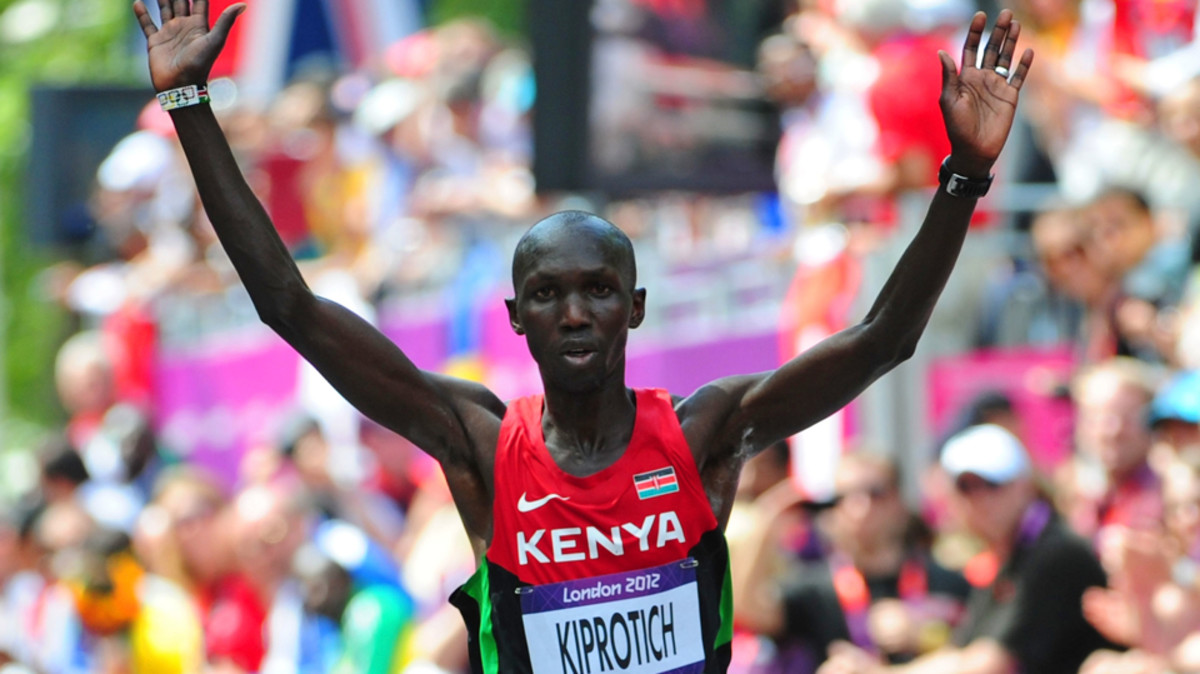Wilson Kipsang would’ve passed on Kenyan Marathon Trials for Rio 2016
Wilson Kipsang dropped out of the IAAF World Championship Marathon in Beijing at the 35-kilometer mark. It was a good training run.
Clad in his red, black and green Kenyan national team kit, Kipsang decided to use the global championship setting as a training run after the humidity became unbearable and he started to tighten up with just over 10 kilometers remaining in the race.
“Having not completed the race, I just counted it as a long run,” Kipsang said. “If you try to see the speed of those 35 kilometers, it was the same speed as a normal long run in training. So I just went back and recovered for a little bit and proceeded to train. It’s like I’ve been training all through preparing for this race.”
It was Kipsang’s second time contesting the marathon at a global championship and the first time that he did so, he earned a bronze medal at the 2012 Summer Games in London.
Kipsang, 33, will be running Sunday’s New York City Marathon and he plans on running another before ultimately hearing his fate at the hands of Athletics Kenya as to whether or not he will race at the 2016 Games in Rio de Janeiro.
• Athletics Kenya scraps Olympic marathon trials plans
Athletics Kenya has a very subjective way of selecting its Olympic marathon squad. Before 2012, some athletes were under the impression that running well at the Boston Marathon would result in selection. Kenya’s Wesley Korir won and was not selected.
If you fall into the good graces of Athletics Kenya and run well enough at some of the World Marathon Majors and other select high level marathons like Paris or Rotterdam, you have a good chance of running at a World Championships or Olympics.
Kenya thought, for just 12 days, that staging an Olympic Marathon Trials would be a good idea. The United States does it as the top three men’s and women’s finishers punch their ticket to the Summer Olympics. The only problem was that Kenya announced a February race just fourth months in advance, did not have a set course or venue and provided few details about the plans. The plan was scrapped.
Stars like Kipsang would have taken a hefty pay day for a spring marathon like London or Boston instead of racing for a chance to represent his country at the Olympic Games. For someone who makes his living by running, it makes sense as a business decision instead of running two marathons without any appearance fee.
“I wouldn’t run,” Kipsang said. “I would have a marathon to run already. If there’s guys that were running in Tokyo [which is scheduled for Feb. 28, 2016] that would be too close. Those that would be running in spring marathons would also.”
If it was up to him, he would sit down and interview 10 athletes before informing them of their statuses for the 2016 Summer Olympics. Athletes would know if they were on the Olympic team by February and any spring marathon performance would not hinder their statuses.
“In a marathon you might find that you run poorly this time but next time you run good,” Kipsang said. “It’s not an indication that if you run very well in February that you’ll run very well in August. The marathon is all about preparation, training and focus.”
Kipsang will run New York on Sunday and looks to become the first man to win back-to-back titles in consecutive years since Kenya’s John Kagwe in 1997 and 1999. (Kipsang’s training partner Geoffrey Mutai won back-to-back titles in 2011 and 2013 due to 2012’s race cancelation because of Hurricane Sandy.)
Will it all matter for his chances for Rio? Kipsang said no. Only Athletics Kenya really knows.





